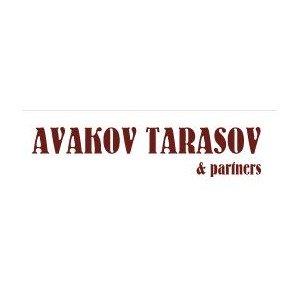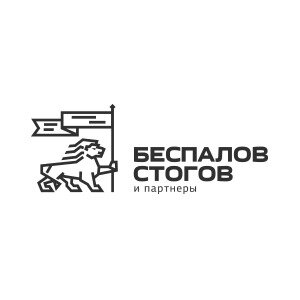Best Sanctions & Export Controls Lawyers in Russia
Share your needs with us, get contacted by law firms.
Free. Takes 2 min.
Or refine your search by selecting a city:
List of the best lawyers in Russia
About Sanctions & Export Controls Law in Russia
Sanctions and export controls are critical legal regimes in Russia, especially in light of ongoing changes in the international geopolitical landscape. Sanctions refer to measures imposed by the Russian government or foreign states that prescribe or restrict specific economic activities with certain countries, entities, or individuals. Export controls involve regulatory frameworks governing the trade, export, and transfer of goods, technologies, and services, particularly those that may have military, dual-use, or economic significance. Russian legal and regulatory frameworks are complex and subject to frequent updates, making legal compliance a challenge for individuals and businesses engaged in cross-border trade or international partnerships.
Why You May Need a Lawyer
Legal assistance in the area of sanctions and export controls is vital for several reasons. Businesses operating internationally or involved in import and export of goods and technology must ensure strict compliance with rapidly changing laws to avoid severe penalties. Common situations where legal help is needed include responding to foreign sanctions targeting Russian entities, understanding restrictions imposed by Russian authorities on trade with specific countries, dealing with frozen assets or blocked transactions, and conducting due diligence in cross-border contracts. Legal experts can help interpret the law, prepare internal compliance programs, handle government investigations, and represent clients in legal disputes arising from sanctions and export control issues.
Local Laws Overview
Russia’s approach to sanctions and export controls is governed by several key statutes and government decrees. The Federal Law on Measures of Influence on Persons Involved in Violations of Fundamental Rights and Freedoms of Citizens of the Russian Federation establishes the procedure for imposing reciprocal and counter-sanctions. Export controls are regulated primarily by the Federal Law on Export Control and supporting regulations, dictating licensing procedures, control lists of goods and technologies, and penalties for violations. In recent years, Russia has introduced new restrictions on economic activities with “unfriendly” states and entities to protect national interests. Key authorities include the Ministry of Industry and Trade, Federal Service for Technical and Export Control, and the Central Bank of Russia, all of which have roles in licensing, enforcement, and regulatory supervision.
Frequently Asked Questions
What are sanctions and export controls?
Sanctions are legal restrictions or measures targeting specific countries, individuals, or entities, while export controls regulate the export or transfer of particular goods, services, or technologies that could impact national security or foreign policy.
Who must comply with Russian sanctions and export control laws?
All legal entities, organizations, and individuals operating in Russia or involved in activities subject to Russian jurisdiction must comply with these laws. This includes foreign firms with a presence in Russia for specific types of transactions.
What are the penalties for violating export controls in Russia?
Penalties range from administrative fines to criminal prosecution, asset freezes, and cancellation of business licenses. Severity depends on the nature and intent of the violation.
How does Russia determine which countries or entities are sanctioned?
Sanctions are determined by government decrees in response to international events or perceived threats to Russia’s security and interests. Lists of sanctioned parties are regularly updated by the relevant authorities.
Are there any exceptions or licenses available under Russian export controls?
Yes. Certain exports may be permitted under specific licenses issued by regulatory authorities. Companies must apply for and obtain these licenses before conducting restricted activities.
Is it possible to conduct business with a company under Russian sanctions?
It is generally prohibited to deal with entities or individuals named on Russian sanctions lists unless an explicit license or exemption is granted. Violating this can trigger severe penalties.
How can companies conduct due diligence regarding sanctions compliance?
Firms should regularly check official sanctions lists, review business partners, and implement internal compliance procedures. Legal counsel can help design these processes and ensure up-to-date compliance.
What should I do if my assets are frozen due to sanctions?
You should seek legal advice immediately to understand the grounds of action and to explore options such as appeals, license applications, or litigation, depending on the circumstances.
Can foreign sanctions affect Russian companies and individuals?
Yes. Many foreign governments have imposed sanctions affecting Russian entities or persons, and these may impact international transactions, banking, or property held abroad.
How often do Russian sanctions and export control regulations change?
Regulations can change frequently in response to political developments. Businesses and individuals should monitor official updates and seek professional advice to remain compliant.
Additional Resources
Key resources for guidance and updates on sanctions and export controls in Russia include:
- The Ministry of Industry and Trade of the Russian Federation: Primary authority on export control regulation and licensing.
- Federal Service for Technical and Export Control: Supervises technical and dual-use goods exports.
- Bank of Russia: Issues guidance on sanctions-related financial transactions.
- Russian Government Legal Information Portal: Publishes texts of all major legal acts, including decrees on sanctions.
- Professional legal organizations and bar associations: Provide legal referrals and updates on regulatory changes.
Next Steps
If you need legal assistance in the area of sanctions and export controls in Russia, consider the following steps:
- Identify the specific issue or question you need to address, such as compliance, licensing, investigation, or dispute resolution.
- Gather all relevant documentation, including contracts, communications, regulatory notices, and records of affected transactions.
- Consult with a qualified lawyer who specializes in Russian export controls and sanctions law to obtain tailored advice and develop a compliance or defense strategy.
- Stay informed about ongoing legal changes by subscribing to industry alerts or updates from regulatory agencies.
- Implement or update internal compliance procedures to reduce legal risk and respond promptly to new regulatory developments.
Proper legal guidance is crucial in navigating the evolving landscape of sanctions and export controls in Russia, helping to safeguard your business interests and ensure full compliance with the law.
Lawzana helps you find the best lawyers and law firms in Russia through a curated and pre-screened list of qualified legal professionals. Our platform offers rankings and detailed profiles of attorneys and law firms, allowing you to compare based on practice areas, including Sanctions & Export Controls, experience, and client feedback.
Each profile includes a description of the firm's areas of practice, client reviews, team members and partners, year of establishment, spoken languages, office locations, contact information, social media presence, and any published articles or resources. Most firms on our platform speak English and are experienced in both local and international legal matters.
Get a quote from top-rated law firms in Russia — quickly, securely, and without unnecessary hassle.
Disclaimer:
The information provided on this page is for general informational purposes only and does not constitute legal advice. While we strive to ensure the accuracy and relevance of the content, legal information may change over time, and interpretations of the law can vary. You should always consult with a qualified legal professional for advice specific to your situation.
We disclaim all liability for actions taken or not taken based on the content of this page. If you believe any information is incorrect or outdated, please contact us, and we will review and update it where appropriate.
Browse sanctions & export controls law firms by city in Russia
Refine your search by selecting a city.













